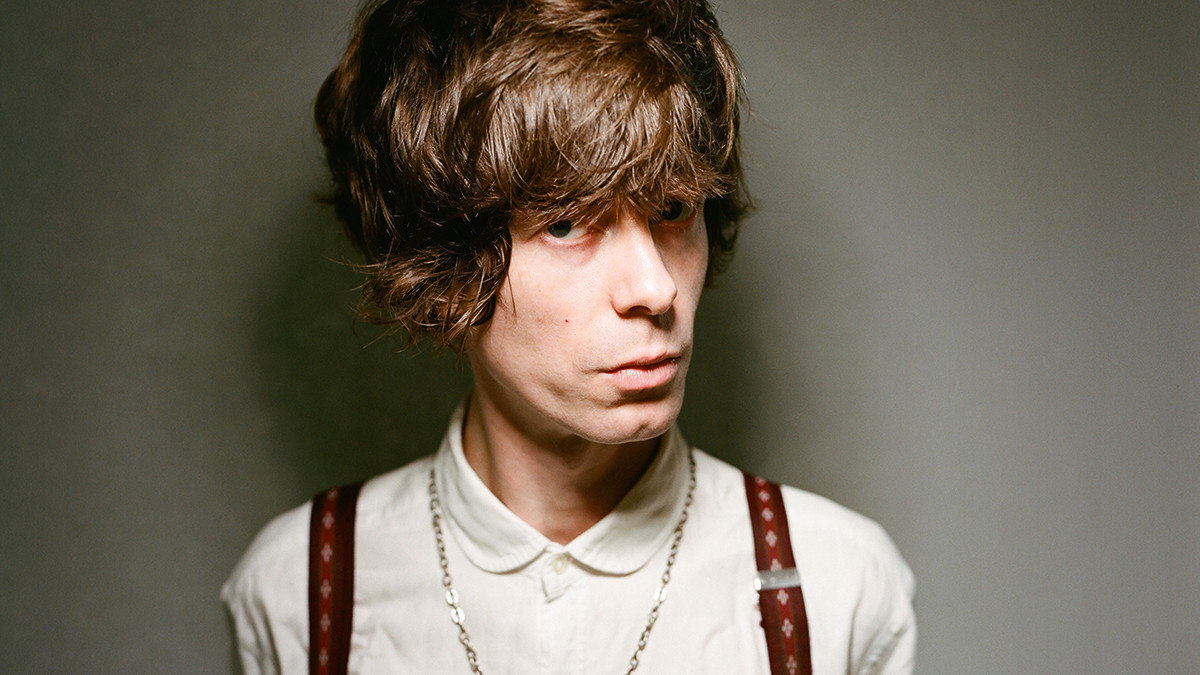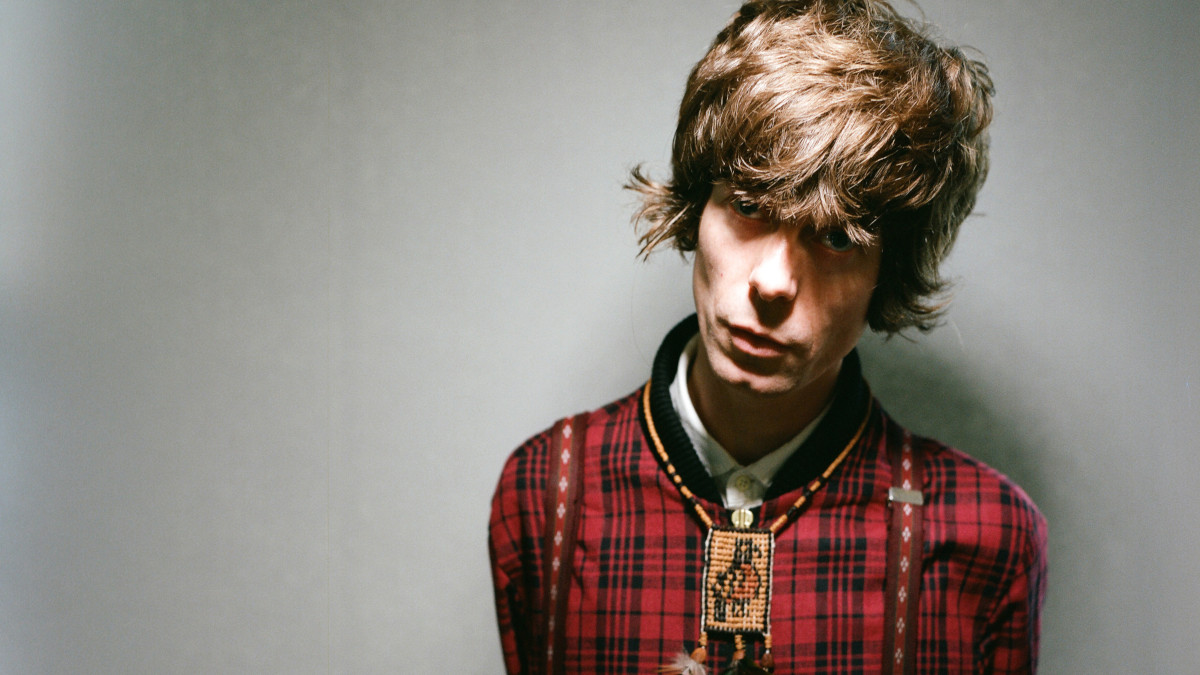Fionn Regan: “The guitar, to me, is like the ‘lightning rod’. When that mysterious thing is working, everything resonates from that”
The ethereal Irish singer-songwriter talks sixth album Cala

Want all the hottest music and gear news, reviews, deals, features and more, direct to your inbox? Sign up here.
You are now subscribed
Your newsletter sign-up was successful
The term ‘releasing music’ is perhaps more poignant than we first realise. As a songwriter, it’s an exciting time, but it’s also akin to sending your offspring out into the wild.
When we talk to Fionn Regan earlier this year, the Irish singer-songwriter is watching the tentative steps of newly released single Collar Of Fur - the first taste of sixth album Cala.
“It feels like the whole thing is a wheel,” he says. “There’s different phases. I think the way that music resonates to people when they listen to it, that’s how the whole wheel turns, you know?”
Using the guitar in a sparser way, where the guitar is very central and wide. That’s what was exciting me this time
Regan often talks like this, in metaphors and unfinished riddles, as if he has one ear on this astral plane fielding your questions, and the other picking up cosmic whispers.
His music is similar, taking the un-dressy, sparsity of the classic acoustic singer- songwriters yet presenting it in a kind of all-enveloping atmospheric warmth. Despite records that have toyed with this definition, Cala has been noted as a return to that formula, bearing some similarity to his Mercury-nominated debut, 2006’s The End Of History.
“It’s these cycles,” he says. “Sometimes it feels good to move and to challenge what it is that you do, but the thing is to try and go with that natural, instinctual excitement - whatever that is, you have to go with that.
"Right now, it’s using the guitar in a sparser way, where the guitar is very central and wide. That’s what was exciting me this time and that’s what’s exciting me about playing live at the moment, for whatever reason.”
Want all the hottest music and gear news, reviews, deals, features and more, direct to your inbox? Sign up here.
In keeping with the sonic homecoming, Cala was partially written in Regan’s hometown, Bray - located just south of Dublin on Ireland’s eastern coast. However, the songwriter points out that he also wrote in New York and Spain, the latter of which explains the record’s title - ‘cala’ is Spanish for creek or inlet - and songs like Volca (Catalan for volcano).
“I think the overall theme seems to be the sea,” he says. “It’s what brings those different atmospheres and places and environments together. It’s one of those things where the lyrical thread through certain things seems to reflect that.”
Regan’s phenomenal sense of space, of atmosphere, reflects it, too. It’s in the lilting synth swells at the end of The Ocean Wave, the wave-like lapping of the fingerpicking and the dripping notes at the close of Hunting Dog -and the immense sense of ‘edge-of-the-world’ space that echoes through the whole record.

Bring me the horizon
“You feel that there’s a certain amount of peace in that horizon,” says Regan. “It’s always hard to articulate these things, but it feels like most of the songs have that. That they exist in the sea and the shoreline. The songs have a sense of that atmospheric expanse.”
If the song is good, I just think: ‘Try not to get in the way of that. Just let the song be the song.’
It is that ability to bottle that sense that sets Regan comfortably apart from the usual acoustic-wielding balladeer. “It’s a very abstract thing,” he responds. “I have a really strong vision about what sort of atmosphere the songs want to be immersed in. It feels instinctual, but a lot of it is that I’m looking for simplicity [in the song] but also some sort of atmosphere to stand beside it. It’s like you’re moving along with this wave and you’re trying to navigate and it feels like the ideas present themselves as you’re moving along.”
For Regan, songwriting is a mercurial practice. He uses words like ‘abstract’, ‘mysterious’ and ‘instinctual’ repeatedly. There are, however, some more concrete consistencies. For instance, the acoustic guitar - most often his faithful Maton or a Martin D-28 - which is usually at the heart of the process.
“The guitar, to me, is like the ‘lightning rod’,” he says. “When that mysterious thing is working, everything resonates from that and it feeds into the songs. I have a vision and I kind of build that even before I play the guitar... but the guitar is an inspiring thing for me. There’s something about it that I always return to.”
Cala is in some ways an ode to a calling, a record that allows Regan to return not to his roots exactly, but rather to compound what he has learned along the way; to follow that thing that first excited him: releasing the music, letting it stand on its own feet and find its way to new homes.
“If the song is good, I just think: ‘Try not to get in the way of that. Just let the song be the song.’ That doesn’t mean it’s the only way, but that’s what I always come back to. I think, definitely on this album, I hope that it feels like the songs are the focus right across the whole distance of the album. That I could play these songs from start to finish with a guitar, solo, and it will all hold up.”
Matt is a freelance journalist who has spent the last decade interviewing musicians for the likes of Total Guitar, Guitarist, Guitar World, MusicRadar, NME.com, DJ Mag and Electronic Sound. In 2020, he launched CreativeMoney.co.uk, which aims to share the ideas that make creative lifestyles more sustainable. He plays guitar, but should not be allowed near your delay pedals.


